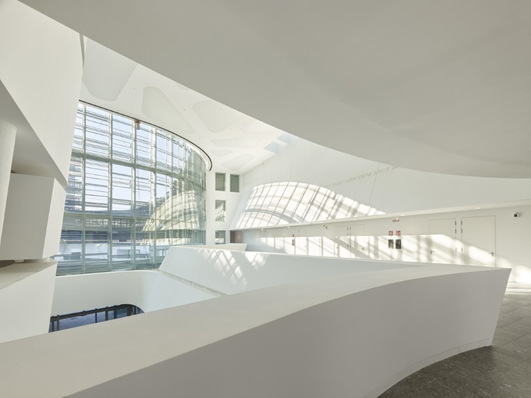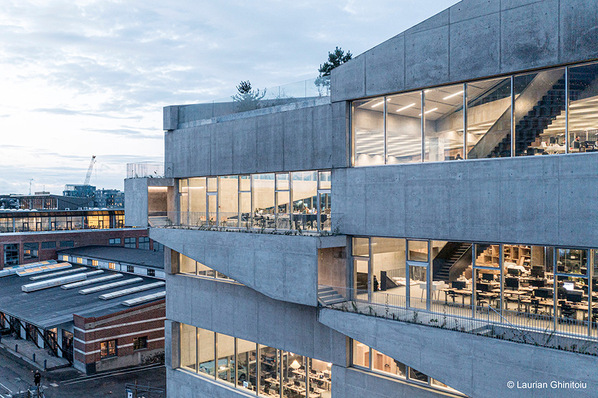The energy efficiency of buildings is a very important factor in reducing energy costs on the one hand and the CO2 emissions of buildings on the other. Internorm from Austria once calculated the benefits of replacing old windows with new ones.
For a long time now, thermal renovation has had the highest return on investment. 27 per cent of final energy consumption in Austria is used for space heating, hot water and cooling in buildings (editor's note: in Germany this is a few cents more) and 88 per cent of greenhouse gas emissions in the building sector are caused by private households. No wonder, then, that the renovation of housing is in the focus of the global reduction of emissions.
See also: European PVC window association calls for massive renovation campaign
But there are also great advantages when viewed individually, because comprehensive building renovation saves up to 76 % energy (according to a study by the German Energy Agency DENA). This means that running costs can be reduced in times of record energy prices. Above all, however, the increased energy costs lead to a faster amortisation of the necessary investment expenditure compared to the pre-crisis period. Refurbishment therefore pays off more than ever.
Calculation example based on current energy prices
If a 150 m2 single-family house with about 50 m2 of glazed area is converted from single to triple glazing, the household costs for gas heating are reduced by 3,431 euros per year and with electricity heating by 4,660 euros. This corresponds to annual CO2 savings of 2.5 and 3.8 tonnes of CO2 respectively. Calculated over the lifetime of qualitative windows - about 30 years - this is more than one million kilometres driven on the motorway or 200 trees saved in the case of gas heating.
"A window renovation currently pays for itself in as little as five years. With a current real interest rate of -8 % and an estimated investment cost of about 25,000 euros, the annual return on saved costs averages 4,000 euros. This return corresponds to an effective return on the investment of 16 %, which is currently difficult to realise elsewhere," explains Christian Klinger, co-owner and company spokesman for Internorm. "Climate protection can be as simple as that, and it also pays off for your own pocket. Therefore: Better sooner than later! Window replacement can be carried out quickly at any time of year - even in winter. Windows can be professionally replaced in the shortest possible time without long restrictions on private living space. From then on, the energy-saving clock is ticking and costs are reduced," Klinger continues.
Renovation offensive necessary in Austria and Germany
Renovation is a real economic driver, especially in times of crisis. According to a study by the Climate & Energy Fund from 2016, every euro invested in renovation triggers an additional added value of four euros. Due to the locally necessary implementation, this money also stays in the country. "It is all the more surprising that the government is not considering more far-reaching funding models. Especially in view of the threat of CO2 penalties of up to eight billion euros," explains Christian Klinger. "Currently, the funding focus is on 'getting out of oil', which is right and important in terms of the necessary independence from fossil fuels.
Also interesting: Refitting of SAS headquarters with recycled Saint-Gobain glass
But the problem is that there are currently no alternative energy products like heat pumps on the market and the installation capacity is lacking. Even if I wanted to, I can't switch at the moment. For this reason, too, thermal optimisation should be thought of in a more holistic way: first renovate the building envelope and then replace the heating system. Because no one wants to heat, metaphorically speaking, an open tent with a heating system that is much too big," Klinger adds.
"Super bonus" makes Italy a model student of renovation
Our neighbouring country Italy shows how it can work. Two years ago, a renovation offensive was launched there with a revolutionary subsidy model. A so-called "super bonus" of 110% is granted for energy-efficient renovation work. The prerequisite is an increase in the energy class of the building by at least two levels, including photovoltaic systems and charging stations for EVs.
"This is a way to get real movement on reaching climate targets. And even if the model also has weaknesses, it shows that holistic considerations have enormous leverage. That is why we are finally calling for a holistic subsidy system for thermal renovation in Austria as well, one that is unbureaucratic, uniform throughout the country and, above all, effective in the long term: with a mandatory sequence, the possibility of subsidising individual trades separately, and the integration of alternative energy supply options," demands Internorm co-owner Klinger.













